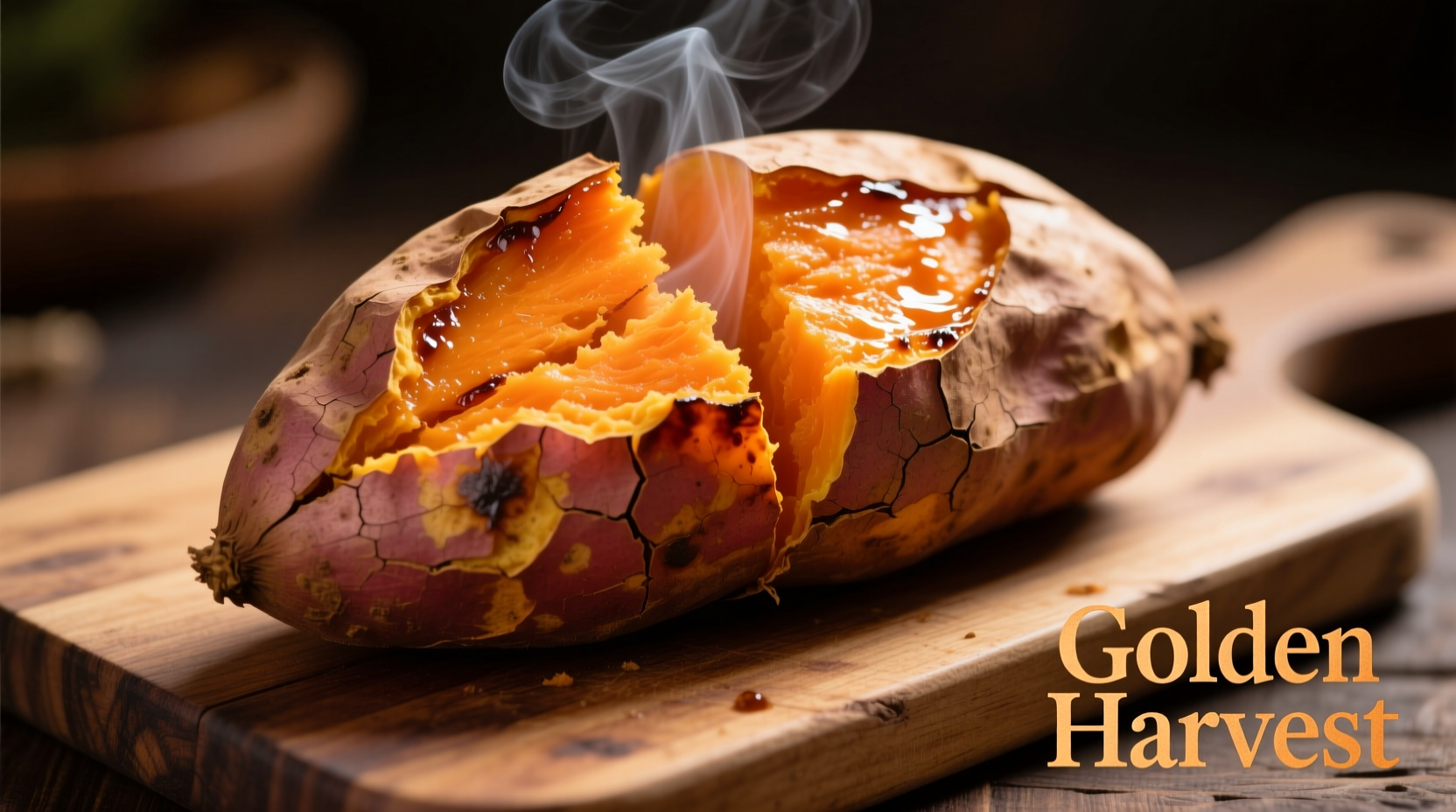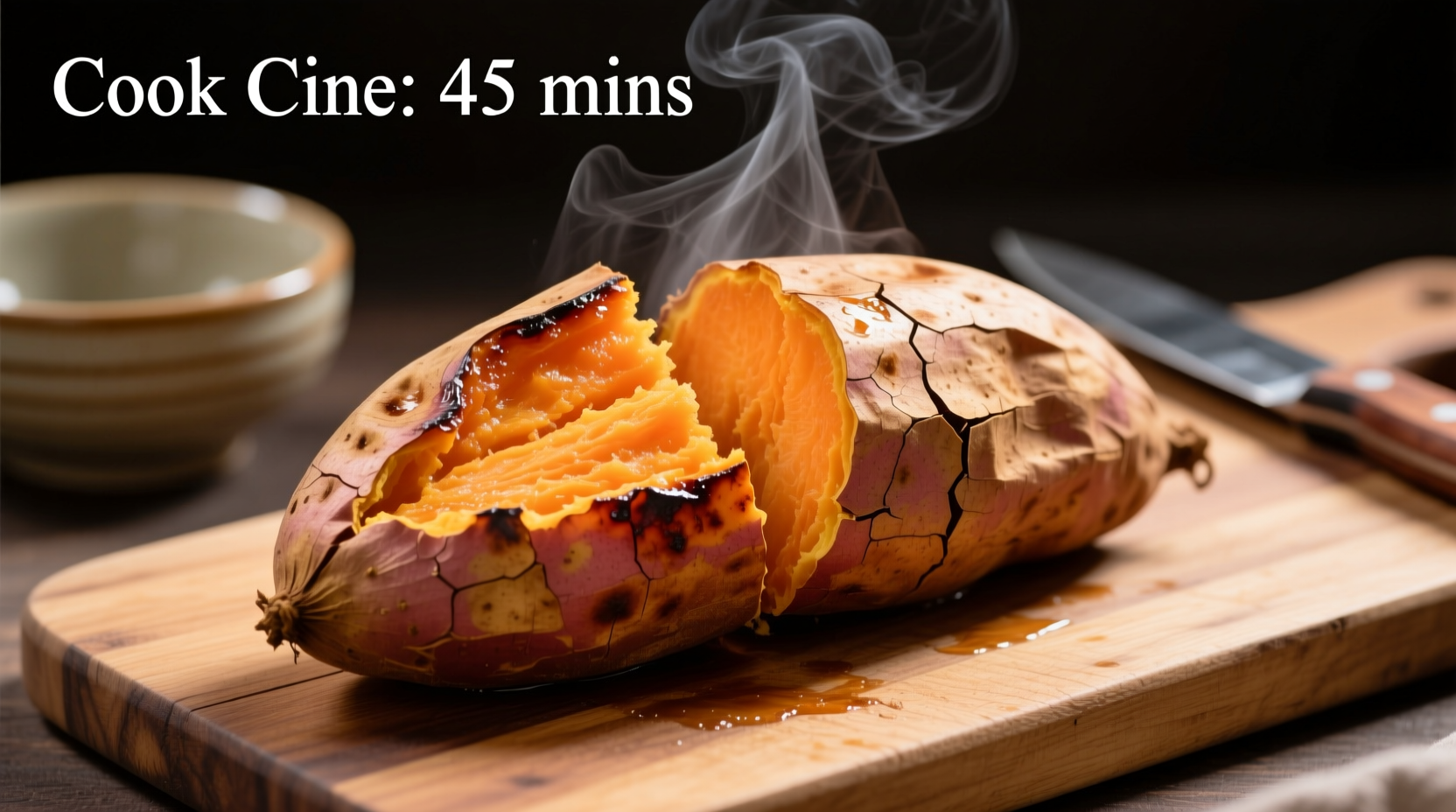Getting sweet potatoes perfectly cooked can make the difference between a disappointing meal and a culinary triumph. Whether you're preparing a weeknight dinner or holiday feast, knowing precisely how long to cook sweet potato ensures optimal texture, flavor, and nutrient retention. This comprehensive guide delivers exact timing for every cooking method, backed by culinary science and professional kitchen experience.
Factors That Affect Sweet Potato Cooking Time
Before diving into specific methods, understand these critical variables that impact how long to cook sweet potato perfectly:
- Size and thickness: Larger sweet potatoes require significantly more time than smaller ones
- Starting temperature: Refrigerated potatoes need 5-10 minutes longer than room-temperature ones
- Desired texture: Firm for salads vs. creamy for mashing requires different cooking durations
- Oven calibration: Home ovens often vary by 25°F, affecting cooking time
| Cooking Method | Prep Time | Cooking Time | Internal Temp |
|---|---|---|---|
| Baking/Roasting | 5-10 min | 45-60 min | 205-212°F |
| Boiling | 10-15 min | 20-30 min | 205-212°F |
| Steaming | 5 min | 25-35 min | 205-212°F |
| Microwaving | 2-3 min | 5-8 min | 205-212°F |
| Air Frying | 5 min | 35-45 min | 205-212°F |
Perfect Baking: The Classic Method
For that caramelized exterior and fluffy interior everyone loves, baking remains the gold standard for how long to cook sweet potato in the oven. Professional kitchens at institutions like the Culinary Institute of America recommend this precise approach:
- Preheat oven to 400°F (200°C) - verified with an oven thermometer
- Wash and pierce sweet potatoes with a fork (4-5 times per potato)
- Place directly on oven rack with baking sheet below to catch drips
- Cook for 45-60 minutes for medium-sized potatoes (5-7 oz)
- Rotate halfway through cooking for even results
The University of California Cooperative Extension confirms that sweet potatoes reach optimal texture at an internal temperature of 205-212°F. Larger potatoes (over 8 oz) may require up to 75 minutes. Their research shows that baking at 400°F preserves more beta-carotene than boiling.

Boiling: Fast and Foolproof
When you need sweet potatoes quickly for mashing or salads, boiling delivers consistent results. Here's exactly how long to cook sweet potato on the stovetop:
- Cut into 1-inch cubes: 12-15 minutes
- Halved medium potatoes: 20-25 minutes
- Whole medium potatoes: 25-30 minutes
For best results, start potatoes in cold, salted water, then bring to a gentle boil. The USDA Food Safety and Inspection Service recommends cooking until a fork inserts with slight resistance. Overboiling causes nutrient loss - particularly water-soluble vitamins like vitamin C.
Microwave Method: Emergency Speed
When time is critical, microwaving provides the fastest solution for how long to cook sweet potato. This method works surprisingly well when executed properly:
- Wash and pierce potatoes thoroughly
- Place on microwave-safe plate
- Cook on high: 5 minutes for one medium potato, adding 2 minutes per additional potato
- Flip halfway through cooking
- Let rest 5 minutes before handling
America's Test Kitchen found that microwaving preserves more nutrients than boiling while achieving similar texture. Their testing confirmed that 5-8 minutes delivers perfect results for most medium sweet potatoes.
How to Test for Perfect Doneness
Regardless of method, use these professional indicators to determine when your sweet potatoes are perfectly cooked:
- Visual cue: Skin appears slightly shrunken with small sugar bubbles
- Tactile test: Squeeze gently (with oven mitts) - should yield slightly
- Fork test: Should insert with slight resistance, not slide through easily
- Internal temp: 205-212°F at thickest part (ideal for creamy texture)
Undercooked sweet potatoes remain hard and starchy, while overcooked ones become waterlogged and lose structural integrity. The sweet spot delivers that signature creamy yet slightly firm texture that makes sweet potatoes so beloved.
Troubleshooting Common Cooking Issues
Even with precise timing, problems can occur. Here's how to fix them:
- Uneven cooking: Rotate potatoes halfway through baking; cut uniform sizes when boiling
- Hard centers: Increase cooking time by 10-15 minutes; check oven temperature accuracy
- Waterlogged texture: Reduce boiling time; pat dry thoroughly after cooking
- Burnt skin: Lower oven temperature to 375°F; tent with foil during last 15 minutes
Food science research from the Journal of Food Science explains that sweet potatoes contain starches that gelatinize between 167-185°F. Cooking beyond this range (to 205-212°F) ensures complete gelatinization for optimal texture without becoming mushy.
Storage and Reheating Guidelines
Properly stored cooked sweet potatoes maintain quality for future meals. Follow these evidence-based recommendations:
- Cool completely before storing (within 2 hours of cooking)
- Refrigerate in airtight container for 3-5 days
- Freeze for up to 12 months (best when cubed or mashed)
- Reheat in oven at 350°F for 15-20 minutes for best texture
The National Center for Home Food Preservation confirms that reheating sweet potatoes to 165°F ensures food safety while maintaining quality. Avoid repeated reheating cycles, which degrade texture and nutrient content.











 浙公网安备
33010002000092号
浙公网安备
33010002000092号 浙B2-20120091-4
浙B2-20120091-4